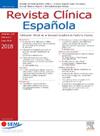出于良心反对提供协助死亡:初级保健中的知识、态度和做法
IF 1.7
4区 医学
Q2 MEDICINE, GENERAL & INTERNAL
引用次数: 0
摘要
背景/目的《安乐死管理法》规定了良心拒服兵役的权利。但是,几乎没有任何关于行使这种权利或反对理由的资料。本研究的目的是确定关于在初级保健中提供死亡医疗援助(MAID)的CO的知识、态度和做法,这是大多数提供医疗援助的护理水平。材料和方法横断面知识、态度和实践模型研究。通过自我填写的问卷,对在西班牙各地保健中心工作的434名在职全科医生进行了关于同性婚姻的知识、态度和做法的调查。对每个领域的回答进行了描述性分析,然后进行了多变量分析,以确定与反对或考虑这样做有关的因素。结果接受调查的全科医生中,46.3%在马德里执业;75.2%为女性,平均年龄47岁;接受过生命伦理学培训的占84.8%;54.9%的人表示知道法律,只有29%的人正确回答有关临终护理中一氧化碳的问题;35%的人反对或考虑反对。马德里执业者的反对率较高(aOR = 2.98;95% CI 1.16-5.34),有宗教信仰的人(aOR = 5.23;95% CI 2.78-9.80),反对MAID的患者(aOR = 12.63;95% ci 5.80-27.50)。反对的主要原因是道德和情感,尽管其他背景因素也会出现。鉴于对人们可以反对的做法的高度无知,需要改进培训和机构参与,以便负责任的做法和保证MAID。本文章由计算机程序翻译,如有差异,请以英文原文为准。
Objeción de conciencia a la prestación de ayuda para morir: conocimientos, actitudes y prácticas en atención primaria
Background/objective
The Euthanasia Regulation Law includes the right to conscientious objection (CO). However, there is hardly any information available on its exercise or the grounds for objection. The objective of this study was to identify knowledge, attitudes, and practices regarding CO to the provision of medical aid in dying (MAID) in primary care, which is the level of care where most provisions occur.
Materials and methods
Cross-sectional knowledge, attitudes, and practices model study. A total of 434 active general practitioners working in health centres across Spain were surveyed through self-administered questionnaires on knowledge, attitudes, and practices related to CO. A descriptive analysis of the responses in each domain was performed, followed by multivariate analyses to determine the factors related to having objected or considering doing so.
Results
Of the general practitioners surveyed, 46.3% practised in Madrid; 75.2% were women, with an average age of 47; 84.8% had received training in bioethics; 54.9% reported knowing the law, only 29% correctly answered questions about CO in end-of-life practices; 35% had objected or considered objecting. Higher rates of objection were observed among those practising in Madrid (aOR = 2.98; 95% CI 1.16-5.34), those with religious beliefs (aOR = 5.23; 95% CI 2.78-9.80), and those opposed to MAID (aOR = 12.63; 95% CI 5.80-27.50).
Conclusions
The main reasons for objecting are moral and emotional, although other contextual factors also emerge. Given the high level of ignorance of the practices to which one can object, improvements in training and institutional involvement are needed for responsible practice and to guarantee the MAID.
求助全文
通过发布文献求助,成功后即可免费获取论文全文。
去求助
来源期刊

Revista clinica espanola
医学-医学:内科
CiteScore
4.40
自引率
6.90%
发文量
73
审稿时长
28 days
期刊介绍:
Revista Clínica Española published its first issue in 1940 and is the body of expression of the Spanish Society of Internal Medicine (SEMI).
The journal fully endorses the goals of updating knowledge and facilitating the acquisition of key developments in internal medicine applied to clinical practice. Revista Clínica Española is subject to a thorough double blind review of the received articles written in Spanish or English. Nine issues are published each year, including mostly originals, reviews and consensus documents.
 求助内容:
求助内容: 应助结果提醒方式:
应助结果提醒方式:


